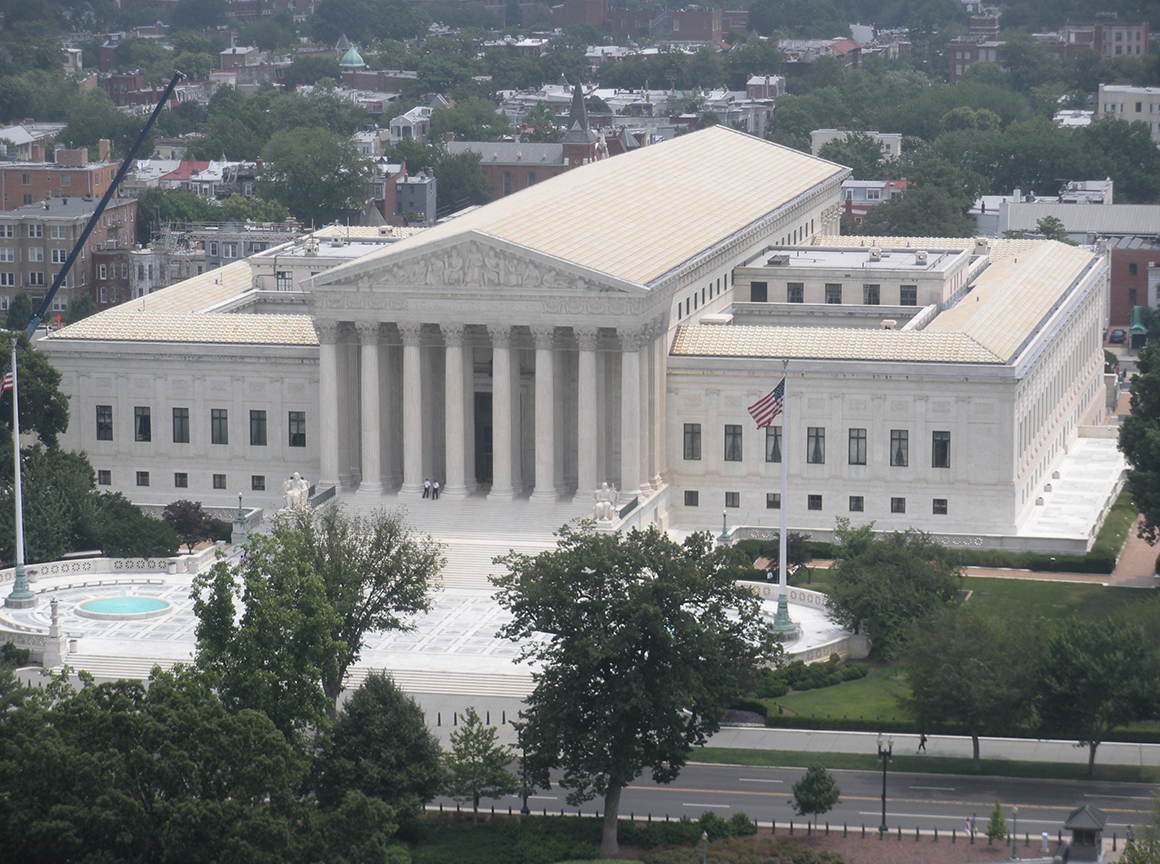Detention
Abdullah al-Kidd v. United States, et al.
The Fourth Amendment prohibits the arrest of criminal suspects without probable cause to believe they have committed a crime. Yet after 9/11, former Attorney General John Ashcroft and the U.S. Department of Justice implemented a policy of misusing the federal “material witness” statute to detain Muslim men for investigative purposes without probable cause to believe that they’d committed any crime. Pursuant to this policy, our client, Abdullah al-Kidd, a Kansas-born U.S. citizen and former football player at the University of Idaho, was arrested on a material witness warrant in 2003 and imprisoned without charges for 16 days, ostensibly because the government wanted his testimony in someone else’s criminal case. He was never called to testify and never criminally charged.
Status: Closed (Judgment)
View Case
Learn About Detention
All Cases
15 Detention Cases

U.S. Supreme Court
Dec 2012
Detention
Smart Justice
Rumsfeld v. Padilla
Reviewing the President's authority to designate an American citizen an 'enemy combatant' and detain him indefinitely in an American military brig without charges, trial, or private access to counsel.
Explore case
U.S. Supreme Court
Dec 2012

Detention
Smart Justice
Rumsfeld v. Padilla
Reviewing the President's authority to designate an American citizen an 'enemy combatant' and detain him indefinitely in an American military brig without charges, trial, or private access to counsel.

Court Case
Dec 2012
Detention
Padilla v. Rumsfeld
Jose Padilla was seized from a U.S. jail in 2002, declared an "enemy combatant" and secretly transported to a military brig in South Carolina. He was imprisoned for nearly four years, the first two of which he was prevented from communicating with his lawyers or family, and subjected to extreme abuse
Explore case
Court Case
Dec 2012

Detention
Padilla v. Rumsfeld
Jose Padilla was seized from a U.S. jail in 2002, declared an "enemy combatant" and secretly transported to a military brig in South Carolina. He was imprisoned for nearly four years, the first two of which he was prevented from communicating with his lawyers or family, and subjected to extreme abuse

Court Case
Nov 2011
Detention
Mohamed et al. v Jeppesen Dataplan, Inc.
During the Bush administration, the practice of "extraordinary rendition" was used to apprehend and detain foreign nationals suspected of involvement in terrorism. The suspect would be arrested and secretly transferred to prisons run by foreign intelligence agencies in countries know to torture, or to CIA-run "black sites."
Explore case
Court Case
Nov 2011

Detention
Mohamed et al. v Jeppesen Dataplan, Inc.
During the Bush administration, the practice of "extraordinary rendition" was used to apprehend and detain foreign nationals suspected of involvement in terrorism. The suspect would be arrested and secretly transferred to prisons run by foreign intelligence agencies in countries know to torture, or to CIA-run "black sites."

U.S. Supreme Court
Apr 2011
Detention
Smart Justice
Jalatzai v. Gates and Wahid v. Gates
In February 2010, the ĚÇĐÄVlogfiled two habeas corpus petitions challenging the illegal detention of four men who have been held — some for nearly two years — at the notorious Bagram Air Base in Afghanistan. The men — who have never engaged in hostilities against the United States and are not members of groups that have engaged in hostilities against the United States — have never been told why they are being detained, been permitted to speak with a lawyer, or given a meaningful opportunity to challenge their detention before a court or a fair and impartial administrative board.
Explore case
U.S. Supreme Court
Apr 2011

Detention
Smart Justice
Jalatzai v. Gates and Wahid v. Gates
In February 2010, the ĚÇĐÄVlogfiled two habeas corpus petitions challenging the illegal detention of four men who have been held — some for nearly two years — at the notorious Bagram Air Base in Afghanistan. The men — who have never engaged in hostilities against the United States and are not members of groups that have engaged in hostilities against the United States — have never been told why they are being detained, been permitted to speak with a lawyer, or given a meaningful opportunity to challenge their detention before a court or a fair and impartial administrative board.
